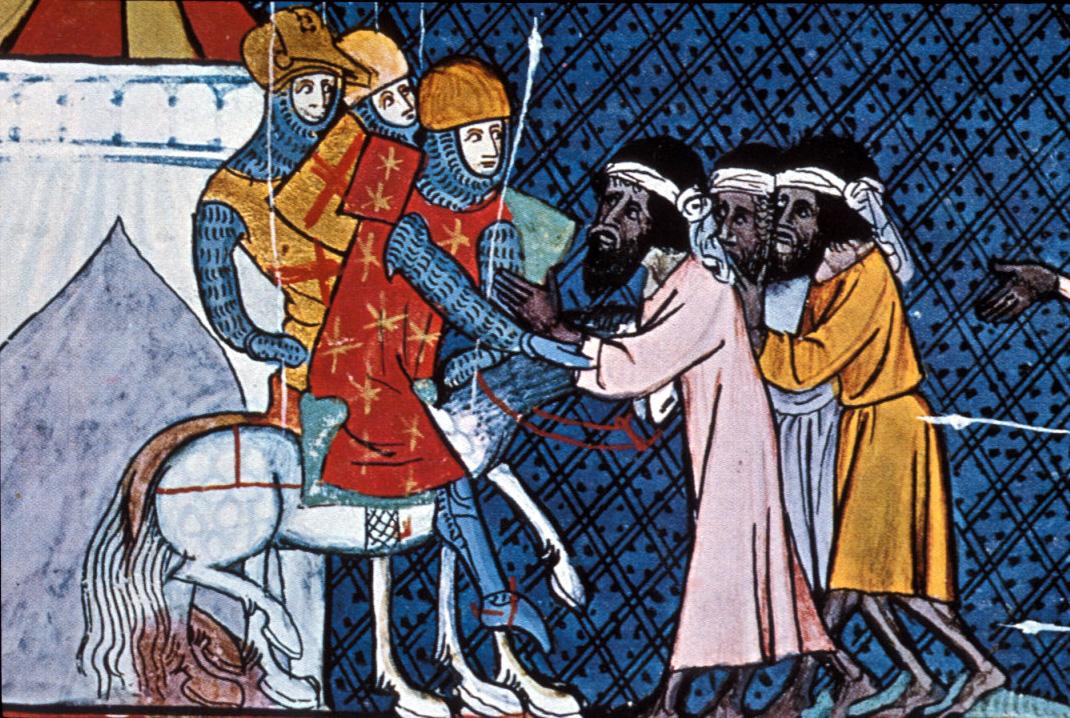Time and Location
MWF 11:45-12:35
Weil Hall 279
Description
Crusades and crusading remain a very popular topic. The idea of holy war–either the Muslim jihad or the Christian crusade–conveys the image on epic clash between two of the world’s great religions. In the aftermath of September 11, 2001, this is in fact the prevailing view among those who are eager to project onto the present their interpretations of the past. Islamists call fellow Muslims to take part in a worldwide jihad against the people of the “West,” whom they label “crusaders.” In reality, medieval holy wars were much more complex and contradictory, often involving such things as friendship and alliances between Muslims and Christians, triumphs of diplomacy rather than by the sword, as well as crusades launched against Christians or jihads proclaimed against fellow Muslims. The historical understanding of what happened is therefore vital for a positive outcome of the present turmoil in that trouble part of the world, the Middle East. This course is designed as a chronological and topical introduction to the history of the Crusades, from the beginning to the present. Since this is a survey, it is impossible to cover everything. Instead, the course will offer a selection of representative topics from a much larger possible list. We will examine some of the key concepts of theology that had historical significance, the political circumstances leading to the launching of the Crusades, and the main aspects of Christian-Muslim interactions throughout the Middle Ages. Our focus will at times shift towards the organization of the crusader states, but we will also take quick glimpses at some other Christian groups in the Near East, especially at the Orthodox and the Armenians, as well as the fate of the Jews in Europe. Anyone with enough curiosity and desire to learn is welcome. There are no pre-requisites and no special recommendations for this course.
Course objectives
Upon completing this course, students will be able to explain large-scale and long-term historical developments in Western Christianity; analyze ways in which Christians have come into contact with Muslims and Jews through trade, migration, conquest, and cultural diffusion; assess the significance of key turning points in the history of the Crusades; describe the development and explain the significance of distinctive forms of political and military organization, doctrine, and forms of religious culture; identify achievements in Crusader art, architecture, and literature, and assess their impact on medieval society in Western Europe, Islam and Byzantium; explain ideals, practices, and rituals associated with holy war in Islam and Christianity.
Textbooks
- Jean Richard, The Crusades, c. 1071-c. 1291 (Cambridge/New York: Cambridge University Press, 1999) [hereafter Richard]; on two-hour reserve in Library West
- S. J. Allen and Emilie Amt, The Crusades. A Reader. 2nd edition. Toronto: University of Toronto Press, 2014 [hereafter Allen and Amt]
- (optional) Peter Lock, The Routledge Companion to the Crusades. London/New York: Routledge, 2006 [hereafter Lock]; on two-hour reserve in Library West
Course requirements and grades
There is no attendance policy, but you are responsible for attending all lectures and reading the required texts. Class participation may be taken into account to determine the overall grade. The basis for evaluation of performance will be four quizzes and two exams (Midterm and Final). The unannounced quizzes are exclusively based on primary source readings from your Allen and Amt book, as well as from the Internet Medieval Sourcebook. All quizzes will consist only of questions (no essay). A careful study of these texts is necessary for a good performance at the quiz. The Midterm and Final exams will cover everything from lectures and readings. Both will consist of a short answer portion and a longer essay. Make-up Midterm and Final exam will be given for very serious reasons. There is no make-up for quizzes. Extra-credit work will be accepted only for students with active participation in class discussions. The format of the extra-credit option shall be discussed with the instructor during regular office hours. The following point-system will be used in determining the final grade:
Quizzes: 40 points
Midterm: 30 points
Final exam: 30 points
Total: 100 points
Grades. The following scale will be used in determining your final grade
| 97-100 | A |
| 93-96 | A- |
| 88-92 | B+ |
| 81-87 | B |
| 75-80 | B- |
| 68-74 | C+ |
| 61-67 | C |
| 55-60 | C- |
| 48-54 | D+ |
| 41-47 | D |
| 35-40 | D- |
| under 35 | E |
